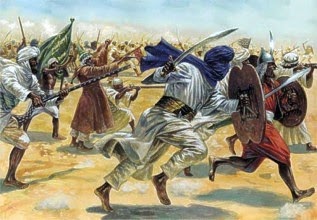HOW MUCH YOU KNOW ABOUT IRAQ WAR? Chilcot Report (the Iraq Inquiry) exposes Tony Blair
IMPORTANT POINTS
·
2.6 million Words in the
bloated report authored by Sir John Chilcot and his committee.
·
Commissioned by the then British Prime
Minister Gordon Brown in 2009, the inquiry has examined the run-up, conduct and
aftermath of the 2003 Anglo-American invasion of Iraq in exhaustive detail.
·
The George W. Bush-Tony Blair combine helped
transform Iraq from an autocratic, though stable, state into a miserable,
divided wreck of a nation
·
Sadly, the lessons of Iraq remain unlearned. We saw this in 2011, when
Muammar Qadhafi was eliminated in Libya.
- It
was the third inquiry into the Iraq war. The previous ones, the Butler and
Hutton reports, were widely denounced as whitewashes.
·
Chilcot’s service is to
gather a vast amount of testimony and publish secret documents, especially
private communications from Tony
Blair to George W Bush,
·
“If I knew then what I
know now, of course I would never have taken Britain to war in Iraq.”
·
In Syria, Western states and their regional
allies have not deployed their own troops in significant numbers, but have
supported proxies — many of them linked to extremists — to topple Bashar
al-Assad’s regime. Russia and
Iran have supported Damascus through their own proxies, or by giving the Syrian
government crucial air cover. the civil war, which has provided fertile ground
for the rise of monsters such as IS, Al Nusra and others. Mr Assad is indeed a
ruthless autocrat, as was Saddam Hussein before him in Iraq.
·
Hearings: 24 November
2009 – 2 February 2011 Report finalized
and published : 6 July 2016
·
Henry
Kissinger’s position that UNSC Resolution 1551 passed in 2004 legitimised the
‘occupation’ of Iraq through its mandate to establish a governing authority in
Iraq. The Chilcot Report, with its unambiguous conclusion that a fresh UNSC
resolution explicitly authorizing the use of force was indeed necessary for any
lawful and legitimate intervention in Iraq.
·
Another important lesson to be drawn from the
Chilcot Report by our government and judiciary is to develop awareness about
UN-based legislation, especially the Chapter VII resolutions passed by the
Security Council, which has now also become a global legislative forum. This is
critical because our foreign policy goals and objectives must also be aligned
with these UN international legal instruments.
·
Article 27 of the Vienna Convention on the
Law of Treaties, 1969 pursuant to which domestic law will yield to
international law in cases of conflict between the two.
·
deaths of 179 British soldiers
·
Blair
said such breaches had been committed but Chilcot said: “The precise basis on
which Mr Blair made that decision is not clear.” He also said Blair changed his
case for war from focusing on Iraq's “vast stocks” of illegal weapons to Saddam
having the intent to obtain such weapons and being in breach of UN
resolutions.“That was not, however, the explanation for military action he had
given before the conflict,” Chilcot said.
·
“He is convinced on two
points: the threat is real; and success against Saddam will yield more regional
success,” Powell said, Former US secretary of state Colin Powell on March 28,
2002
Sources:
Compiled from various dawn articles and the news articles with special mention of the the guardian article which prominently explained aftermath and law points of Chilcot findings.





thanks for letting us know your views..... will post soon
ReplyDelete